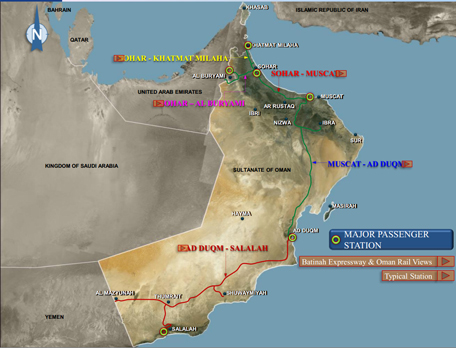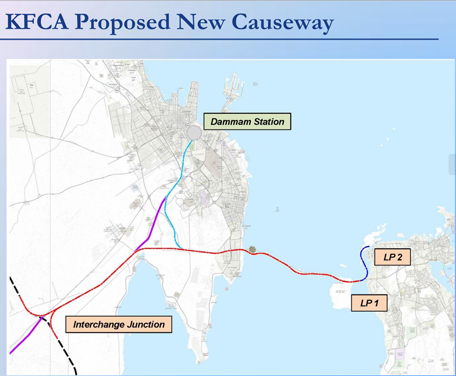September 8, 2014
Developed countries ‘envious’ of GCC economies
Crucial need to invest in young people, education, training
The Gulf Cooperation Council (GCC) countries are in a “very enviable position in comparison with most economies”, Bahrain’s transportation minister has said.
“Developed countries across the world are dealing with a number of acute challenges such as depressed demand, low inflation; household deleveraging, public deficits and secular stagnation,” Kamal Ahmad said.
“At the same time, many emerging markets have had to worry about the possible impact of tightening monetary policy in the US or about domestic credit bubbles. In the GCC, by contrast, we have arguably the strongest fundamentals of any region in the world. We have strong, resilient economic growth, sustainable public finances and household balance sheets, current account surpluses, strong government revenues from hydrocarbons and bright prospects for future growth as those revenues are invested in projects aimed at spurring economic diversification,” he said.
The minister, who is also acting chief executive of the Bahrain Economic Development Board (EDB), was delivering the keynote address at the opening session of the Business Opportunity and Political Risk in the Gulf and Middle East conference in Bahrain.
He attributed the GCC’s privileged position to a strong oil price and to the hard work of reform.
“Everyone is aware of how hard these reforms can be to put in place and make effective. Acting in response to a crisis is one thing, but putting in place difficult policies that sacrifice some short-term advantages or upset some domestic constituencies in order to secure prosperity in 20 years’ time is a very different matter,” he said.
“Of course, the Gulf has long been blessed with resources — but
the reforms that we have made have meant that we are now making better use of them than we did in the past. More and more revenues have been invested domestically in sectors that are characterised by increasing productivity and that have helped to create quality jobs for GCC citizens. We have also taken steps to invest in infrastructure that has made the region a key point on global trade routes and creates a strong foundation for regional integration.”
However, while hydrocarbons are still important to the GCC economy, other
sectors such as logistics, petrochemicals, professional services, tourism and others are playing an increasingly central role in supporting economic growth, he added.
“We have moved from bringing in international firms to export our oil, to building a local role in the hydrocarbon industry and utilising our resources to develop downstream industries such as aluminium, plastics and petrochemicals. Likewise, the wealth that oil and gas generates is increasingly being invested in the local economy through institutions based here in the region, staffed more and more by highly skilled locals. Increasingly, we are transforming wealth below the ground into sustainable industries, such as manufacturing and financial services, and a highly skilled population.”
The minister said that while there was “good” reason to be positive about the current state of the GCC economy, the challenge is to ensure that “the current prosperity is not something that will be seen in 30 years as a short-lived golden age”.
“After all, oil will not last forever — we need to make sure that we develop economies that are able to thrive in the post-oil era. As the population continues to expand there will continue to be a growing, number of young people coming into the workforce,” he said.
Investing in young people who make up 50 per cent of the population and in education are a necessity, he added.
“As well as giving people an education, we also need to encourage the right attitude. If our children leave school thinking that all they need to do is to wait for the government to give them a job, then we have failed them. Our goal must be a productive, innovative economy that generates ideas, products, and services locally and sells them to other markets. The purpose of economic growth should be to create high quality jobs and opportunities for people in the region — to allow them to share in the nation’s prosperity and to ensure that that growth is sustainable in the long term,” he said.
Developed countries ‘envious’ of GCC economies
------------------------------------
September 6, 2014
KIng Abdullah receives King Hamad King Abdullah receiving King Hamad in Jeddah
Bahrain and Saudi Arabia announce new causeway
Second terrestrial link between two kingdoms to boost GCC relations, cooperation
A new terrestrial link connecting Bahrain with Saudi Arabia will be called “King Hamad Causeway”.
“The Custodian of the Two Holy Mosques King Abdullah Bin Abdul Aziz has endorsed the project to construct a second causeway that will link the Kingdom of Bahrain with the Kingdom of Saudi Arabia,” Bahrain News Agency (BNA) reported late on Friday. “King Abdullah’s endorsement of the causeway was announced during his meeting with His Majesty King Hamad Bin Eisa Al Khalifa in Jeddah. King Hamad expressed his thanks and gratitude to King Abdullah for his generous initiative and his strong support to the consolidation of relations between the countries of the Gulf Cooperation Council (GCC).”
The new terrestrial link is expected to consolidate economic, social and cultural relations and cooperation between the GCC countries, the official news agency added.
Bahrain, Kuwait, Oman, Qatar, Saudi Arabia and the United Arab Emirates formed their loose alliance in 1981 in the UAE capital Abu Dhabi.
Bahrain and Saudi Arabia have been connected by the King Fahd Causeway since November 1986.
The 25-kilometre causeway, the longest in the Arab world, was opened by the late King Fahd Bin Abdul Aziz of Saudi Arabia and the late Emir Shaikh Eisa Bin Salman Al Khalifa of Bahrain. It is today one of the busiest traffic areas between Arab countries.
Drivers who use the causeway pay a two Bahraini dinars (Dh19.2) or 20 Saudi riyals (Dh19.5) fee, but no charges are imposed on passengers, regardless of their numbers.
Authorities in Bahrain and Saudi Arabia have recently issued statements about increasing the number of lanes for cars, buses and trucks to help deal with traffic congestion, particularly during the weekends and holidays.
Several Saudis and Saudi Arabia-based foreigners who work or study in Bahrain commute daily while a large number of Bahrain-based expatriates and Bahrainis use the causeway daily to go to their work or universities.
The causeway is also used by trucks, mainly from Saudi Arabia, Kuwait and the UAE, heading towards Bahrain to deliver or load products.
Queues of long vehicles are often seen at the entrance or exit of the causeway.
According to official figures, 40,000 people a day use the terrestrial link between the two kingdoms.
In March, 770,672 people used the causeway during the 10-day break in Saudi schools, Mualla Al Otaibi, the spokesperson for the passports department in the Eastern Province of Saudi Arabia, said.
In December, Saudi Arabia’s National Anti-Corruption Commission (Nazaha) in a searing report said that a probe it had conducted revealed that the absence of traffic patrols, especially at peak hours, was among the major reasons for delays suffered by drivers and passengers as they attempted to use the causeway.
However, the traffic police rejected the findings, saying that they had “nothing to do with the congestion at the causeway” and that “the passports department was in charge of the matter”.
Bahrain also has plans to build a causeway with neighbouring Qatar. Negotiations on “Love Bridge” began in 2009 but were suspended soon after. According to Al Arabiya, negotiations resumed again in late 2013.
https://defence.pk/threads/bahrain-and-saudi-arabia-announce-new-causeway.332941/
---------------------
September 7, 2014
King Hamad Causeway to be used by trains, vehicles
Business community welcomes new terrestrial link as a boost for Gulf relations
The King Hamad Causeway to be built between Bahrain and Saudi Arabia will be used by passenger trains, freight trains and vehicles.
The separate train connections will be part of the wider Gulf Cooperation Council (GCC) 2,170-km railway network, the minister of transportation Kamal Ahmad said.
The new causeway, expected to be 25 kilometres long, will run in parallel with the existing King Fahd Causeway, the only terrestrial link between the two kingdoms, which opened in November 1986. Vehicles carrying millions of passengers as well as trucks have been using the busy causeway over the years, with a daily average of 40,000 people.
The construction of the new causeway was announced during a meeting between King Hamad Bin Eisa Al Khalifa and the Saudi monarch King Abdullah Bin Abdul Aziz late on Friday in the Red Sea port city of Jeddah.
Initial estimations believe that the King Hamad Causeway will take about four years to complete, but the business community in Bahrain has welcomed the project as a much-needed boost to the local and Gulf economies.
Several businessmen said that it would reinvigorate trade and commercial exchanges between the two kingdoms and other countries in the region and beyond.
“It was a most pleasant surprise and we are confident that the new causeway would consolidate commercial, economic and social relations between Bahrain and Saudi Arabia,” Abdul Rahman Fakhroo, a businessman, said. “It will eliminate the crises and problems on the King Fahd Causeway because of its limited capacity. We are really pleased, but we also look forward to plans and designs that anticipate huge developments in the distant future, and not just within five or ten years,” he said.
Businessman Kadhem Al Saeed insisted on the significance of the railway link.
“The railway movement of products has become an urgent necessity, particularly as the region witnesses fast developing rates of commercial activities, urbanism and demography,” he said.
Yousuf Al Mesh’al said that Bahrain and Saudi Arabia as well as the other countries would benefit from the construction of a new terrestrial link.
“It will greatly help with economic integration in several areas,” he said. “The Bahraini market, much smaller than the Saudi’s, will benefit greatly while Saudi Arabia will benefit from the know-how of Bahrainis who can commute every day between the two countries without putting pressure on housing or health services in the Saudi kingdom, for instance,” he said.
https://defence.pk/threads/bahrain-and-saudi-arabia-announce-new-causeway.332941/



























